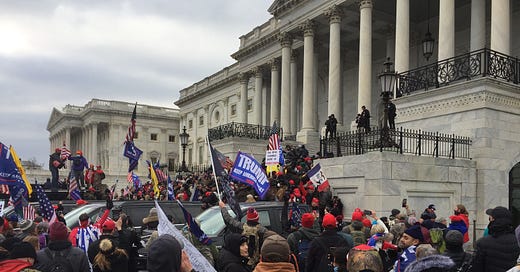Is the GOP an Authoritarian Party?
Based on the research of Steven Levitsky and Daniel Ziblatt. authors of "How Democracies Die," the trendlines are clear: Republicans are embracing key aspects of authoritarianism.
In 2018, two Harvard political scientists Steven Levitsky and Daniel Ziblatt published a book titled "How Democracies Die." The two authors examined how democracies have historically…
Keep reading with a 7-day free trial
Subscribe to Truth and Consequences to keep reading this post and get 7 days of free access to the full post archives.




